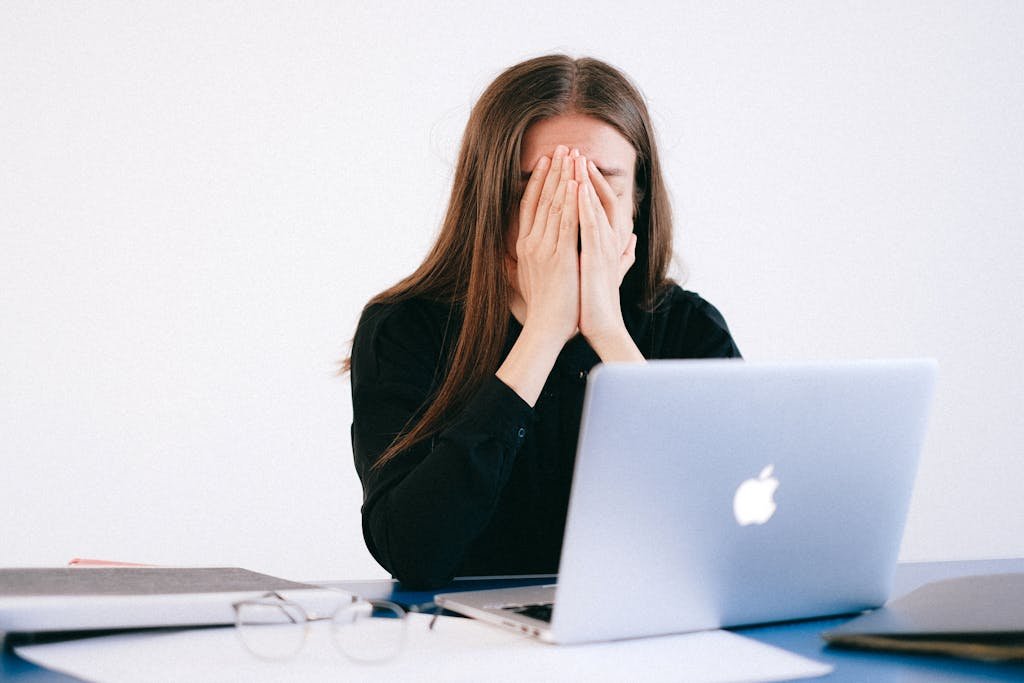
Self-Care for a Healthier Mind: Reduce Stress & Elevate Mental Wellness

The world of mental health has changed a lot. Now, we know how important self-care is in reducing stress. In our busy lives, taking care of ourselves is key for a healthy mind and body. Learning self-care tips for better mental health can lead to a calmer and more stable life.
Self-care is not just a luxury; it’s a smart way to find balance in life. We’ll explore how self-care promotes mental well-being. You’ll find tips backed by science and simple steps for your daily routine. Our goal is to change how you see and use self-care in your life.
Self-care is a way to fight the fast pace of today’s world. It helps you find a balanced lifestyle. Find out how to strengthen your mental health against stress with effective methods that build resilience and peace.
Key Takeaways
- Recognize the indispensable role that self-care plays in managing stress.
- Discover actionable self-care strategies that can lead to better mental health outcomes.
- Gain insights into the science behind stress reduction and the value of self-care routines.
- Understand self-care as a critical component of a holistic approach towards a balanced lifestyle.
- Equip yourself with knowledge to personalize self-care practices that suit your unique needs.
Understanding the Link Between Self-Care and Mental Health
It’s key to understand how self-care and mental health are connected. This knowledge helps us improve our well-being and handle stress better. By practicing self-care, we can see our mental health improve and stress levels drop.
Defining Self-Care and Its Importance
Self-care means taking steps to keep or boost our health and happiness. The World Health Organization says it includes things like staying clean, eating right, and living a healthy lifestyle. It’s about building resilience and managing stress through simple, everyday actions.
The Psychological Benefits of Regular Self-Care
Studies show that self-care boosts our mental health a lot. It can make us feel better about ourselves, lift our mood, and help with anxiety and depression. By doing self-care regularly, we can protect ourselves from daily stress.
Challenges to Engaging in Self-Care Practices
But, many people struggle to make self-care a part of their lives. Journals have found that lack of time, feeling judged, and guilt are big hurdles. Knowing these challenges helps us find ways to make self-care easier and more common, leading to better mental health.
| Barrier | Impact on Self-care | Strategies to Overcome |
|---|---|---|
| Time Constraints | Limits regular self-care activities | Set specific, scheduled times |
| Social Stigma | Prevents open discussions about self-care needs | Education and awareness campaigns |
| Personal Guilt | Hinders self-care involvement | Reframe mindsets to prioritize health |
Practical Self-Care Strategies to Enhance Your Well-being
Adding self-care to our daily lives is key for our mental and physical health. Let’s look at some strategies that fit our personal style and lifestyle. These focus on mental health self-care.
Developing a Personalized Self-Care Plan
To make a self-care plan, think about what you want to improve. This could be physical, emotional, social, or spiritual health. Think about what activities make you feel good.
- Identify stress triggers and create strategies to cope with them effectively.
- Allocate specific times in your schedule dedicated to relaxation and recovery.
- Set realistic goals, such as meditating for 10 minutes a day, to gradually integrate self-care into your daily routine.
Mindfulness and Meditation for Daily Stress Relief
Mindfulness and meditation are backed by science as stress reducers. They help you stay in the moment, lowering anxiety and improving mental clarity.
Mindfulness isn’t about being quiet; it’s about being aware and in tune with your thoughts and emotions, without judgment.
Try short mindfulness exercises throughout the day. Take a moment to breathe deeply and notice your surroundings. It’s a simple way to clear your mind.
Physical Activity as a Pillar of Self-Care
Harvard Medical School says exercise is crucial for both physical and mental health. Activities like yoga or walking boost mood and reduce anxiety.
- Start with light exercises like daily walks or yoga in the morning or during breaks.
- As you get stronger, try more intense or varied exercises.
- Make sure you enjoy your routine—pick activities you like.
Starting self-care doesn’t mean big changes. It’s about making small, thoughtful choices every day. Begin with small steps and let your self-care grow as you find what works for you.
The Role of Social Support in Maintaining Mental Health
Exploring the role of social support in mental health is key. It shows how friends and community help us stay well. Self-care is important for reducing stress, but having a supportive network is just as vital.
Navigating Social Interactions As Self-Care
Healthy social interactions are a form of self-care. They help us deal with stress and improve our mood. Whether it’s time with family or joining in activities, these moments offer emotional support.
Setting Boundaries and the Impact on Stress Management
Setting personal boundaries is crucial for managing stress. It helps us protect our emotional well-being. By knowing our limits, we can care for ourselves better.
Community and Networking: Self-Care Beyond Individual Efforts
Being part of a community boosts self-care. It creates a network of support that helps us all. This shared effort strengthens our mental health as a group.
By understanding these points, we see self-care’s bigger picture. It encourages us to support and be supported by our communities.
| Aspect of Social Support | Benefits for Stress Management | Benefits for Mental Well-Being |
|---|---|---|
| Social Interactions | Provides relief from daily stressors | Enhances feelings of belonging and happiness |
| Setting Boundaries | Prevents burnout and reduces stress | Supports emotional health and self-respect |
| Community Involvement | Offers a safety net during crises | Promotes connectedness and shared healing |
Intertwining Physical Health with Mental Wellness
The connection between physical health and mental well-being is clear. Self-care tips for improved mental health and stress reduction through self-care are key. They work together, not separately. Taking care of our bodies helps our minds stay strong.
Studies show that good physical health helps our minds stay stable. Eating right, exercising, and seeing doctors helps our mood and balance. By making these habits a part of our day, we care for both our body and mind.
- Nutrition: Fuels both physical and mental functions.
- Exercise: Enhances mood and reduces anxiety and depression.
- Sleep: Essential for cognitive function and stress management.
| Sleep Duration | Benefits for Mental Health | Benefits for Physical Health |
|---|---|---|
| 7-9 hours | Improves memory, reduces stress | Boosts immune system, enhances heart health |
| Less than 6 hours | Increases irritability, heightens anxiety | Risks of hypertension, diabetes |
Looking after our physical health is key to good mental health. Self-care tips for improved mental health and stress reduction through self-care show this. Taking care of our bodies helps our minds too.
By caring for both our body and mind, we live better lives. This approach makes us feel more alive and balanced. It shows that a healthy body and mind are essential for a fulfilling life.
How Self-Care Can Improve Your Mental Health and Reduce Stress
Mental health is a big deal today, and self-care plays a huge role. It’s not just a luxury; it’s key to keeping our minds balanced. By looking at science and psychology, we see how self-care fights off stress and boosts our mental health.
The Science Behind Stress Reduction and Self-Care
Stress hurts our brains, causing problems in our thoughts and feelings. But self-care can help fix this. It makes our brains happy again by releasing good chemicals.
This shows how important self-care is for our mental health. It’s not just good; it’s essential for staying strong.
Implementing Routine Self-Care Practices for Long-Term Benefits
Studies show that regular self-care is really good for us. It helps us deal with stress better over time. By making self-care a part of our daily lives, we can stay calm and strong.
This is possible even when we’re busy. It’s all about making self-care a habit and managing our time well.
Coping Mechanisms: From Self-Care to Stress Resilience
Cognitive Behavioral Therapy (CBT) teaches us great ways to handle stress. These skills help us feel better right away and build our resilience for the long run. By combining therapy with self-care, we create a life that’s strong against stress.
Self-care is powerful, not just in the moment but also for our long-term well-being. It helps us live better, even when things get tough.


